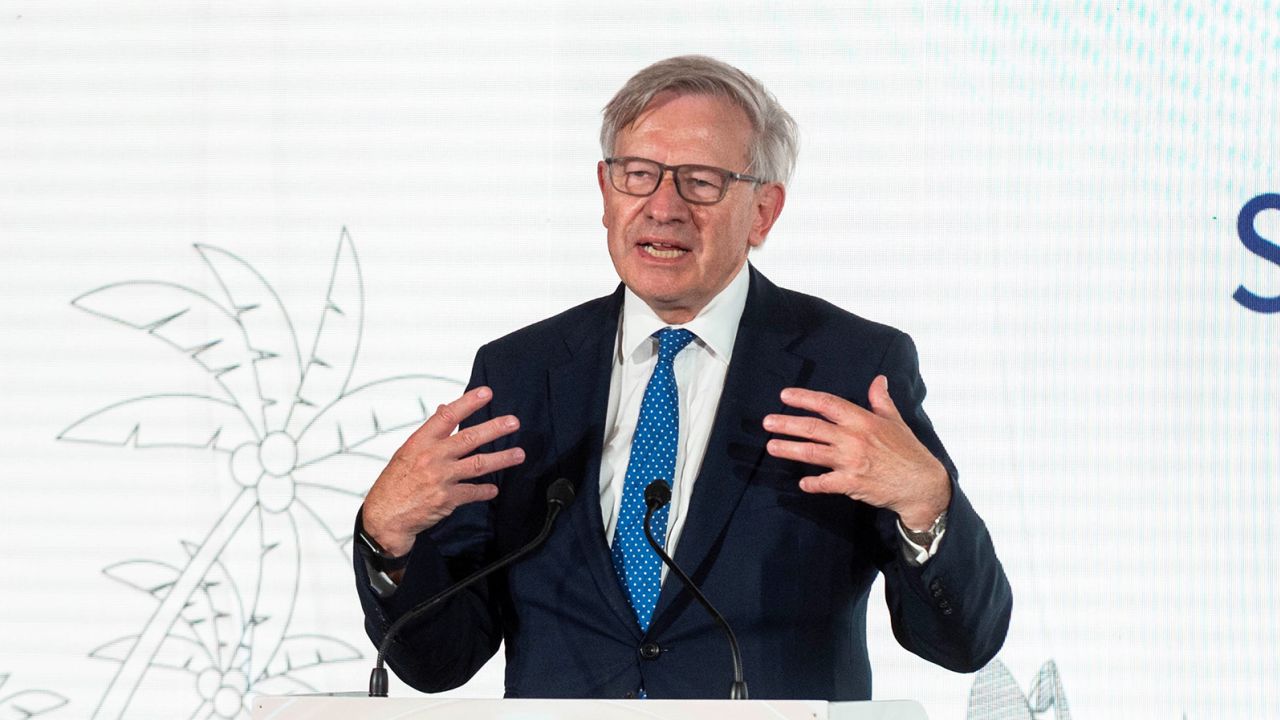A top executive at HSBC has apologized after reportedly calling the UK government “weak” for caving to US pressure over doing business with China, in another sign of the political tightrope the British bank has to walk.
Sherard Cowper-Coles, HSBC’s head of public affairs, inadvertently caused a firestorm Monday when Bloomberg reported his criticism of both the United Kingdom and the United States over their approaches to the world’s second largest economy.
According to Bloomberg, which cited several unidentfied sources, Cowper-Coles told participants of a private event in June that he felt Washington had pressured London into pulling back on business with China.
He also said the British government would often concur with US demands, calling it “weak,” the publication reported.
HSBC makes a large proportion of its profit in mainland China and Hong Kong, but is headquartered and listed in London, leaving it particularly vulnerable to increasing geopolitical tension between Beijing and the West.
Cowper-Coles, a former diplomat who has served as UK ambassador to Israel, Saudi Arabia and Afghanistan, among other postings, was also cited as saying Britain shouldn’t blindly follow the United States, but take care of its own interests.
According to HSBC and Cowper-Coles, the fiery comments were made under the Chatham House rule — a longstanding practice named after a British think tank that means those involved can use the information discussed but not specify the identity or affiliation of the speaker.
“My personal comments don’t reflect the views of HSBC or the China-Britain Business Council,” the executive said in a statement to CNN, referring to a trade lobby he runs as chairman.
Cowper-Coles added that he apologized “for any offense caused.”
The bank echoed that sentiment in its own statement, telling CNN: “Sherard was at a private roundtable discussion under the Chatham House Rule and shared his personal views.”
The comments caused an outcry at home for HSBC (HSBC), which is based in London but makes most of its money in Asia. Several conservative UK lawmakers seized the occasion Monday to criticize Cowper-Coles and HSBC(HSBC).
Tim Loughton, a member of parliament, called Cowper-Coles an “apologist” for the Chinese government while speaking to Bloomberg.
Former Tory Party leader Iain Duncan Smith told the publication “he cannot separate his personal views from HSBC because he is an adviser to HSBC. Now we know what he is advising them.”

Sir Sherard Cowper-Coles making a speech at a conference in London on June 9.Stephen Chung/Xinhua/Getty Images
HSBC is hugely dependent on China, having been founded more than a century ago in the former British colony of Hong Kong to open up trade between East and West.
The city, which is now part of China, remains its top market, accounting for approximately one-third of the bank’s profits in the first half of this year. Meanwhile, Hong Kong and mainland China combined made up nearly 40% of profit, according to its most recent financial report.
But the bank has faced criticism in recent years on how it navigates political tensions between China and the West.
In 2020, HSBC’s top executive in Asia publicly declared support for a controversial national security law that Beijing introduced in Hong Kong, inviting a fierce backlash from Western government officials and investors.
The lender also faced scrutiny in 2021 after Hong Kong police froze the accounts of a former pro-democracy lawmaker, an order HSBC said it had little choice but to comply with. The incident led to a furore among foreign politicians, with CEO Noel Quinn summoned for questioning by British lawmakers at the time.
A survey of British importers published Tuesday founded that 20% had already altered their supply chains because of geopolitical tension, particularly in relation to China, and a further 15% were considering doing so.
“Whilst it is broadly felt that a complete decoupling from China is economically impractical, at least for now, the fact that a significant number of businesses are willing to take on extra costs to secure their global operations shows attitudes to global trade are shifting,” said Emma Rowland, trade policy advisor at the Institute of Directors, which conducted the survey.
Source: CNN









